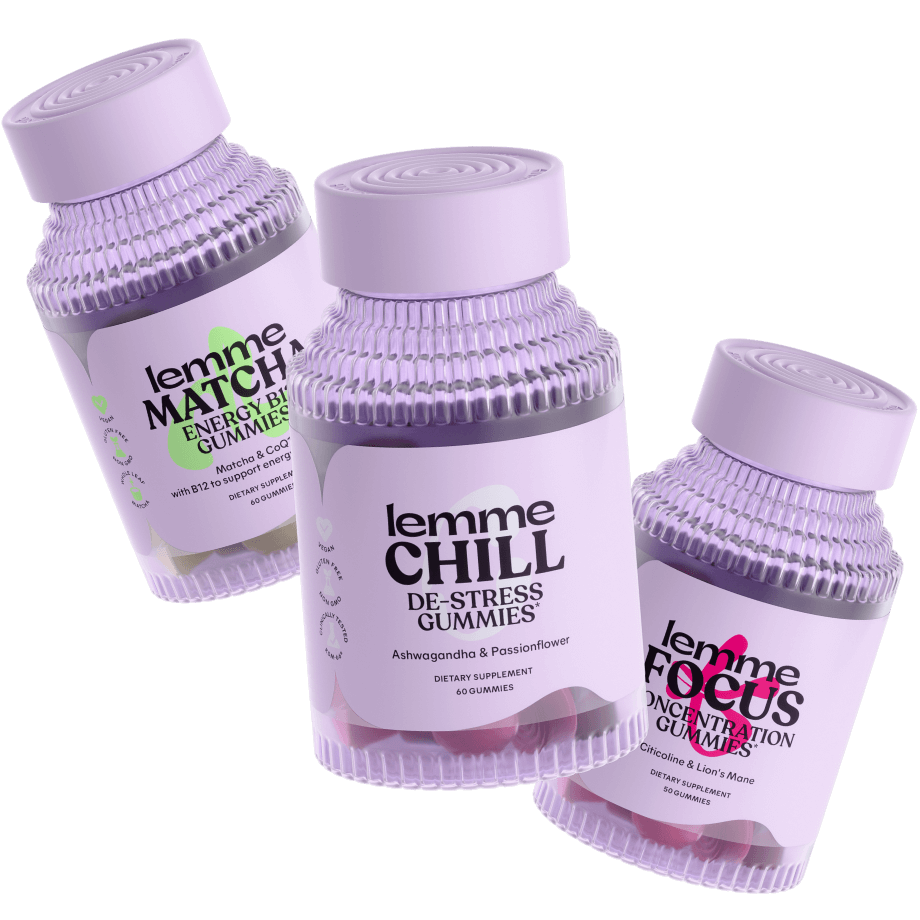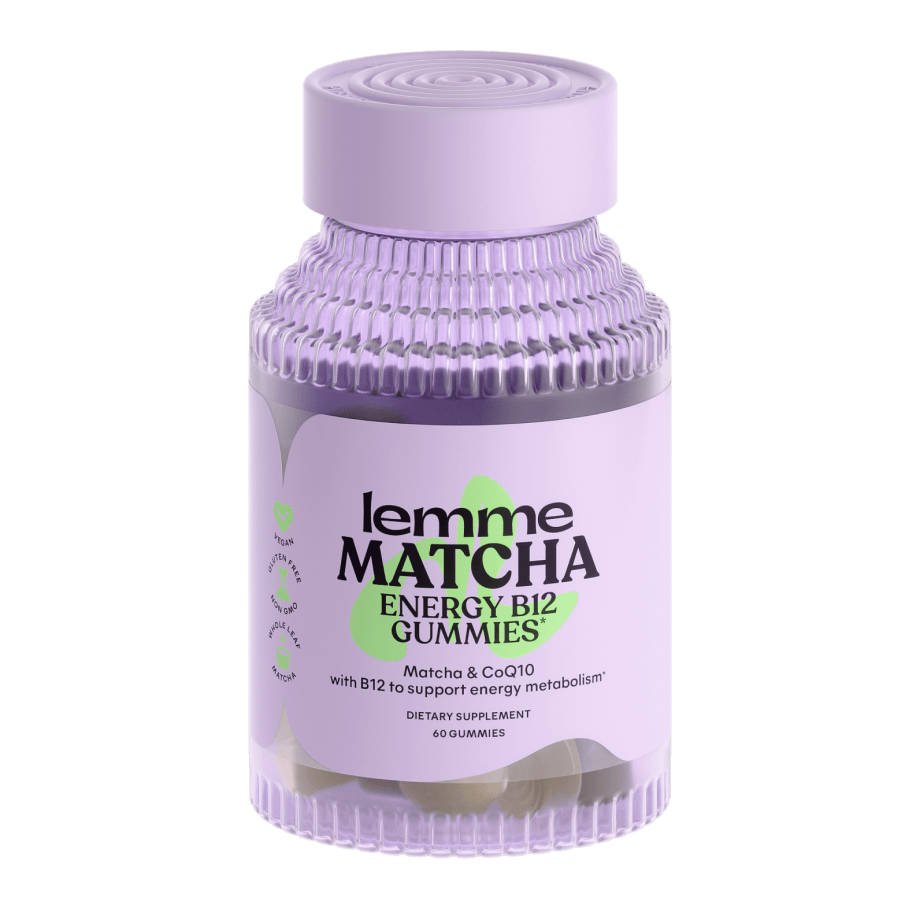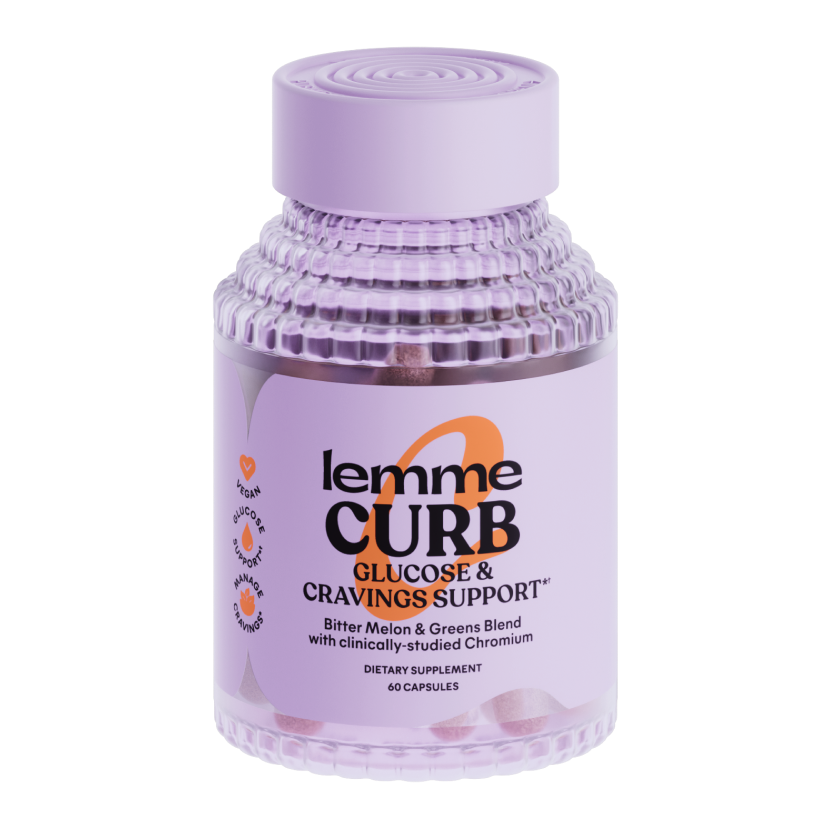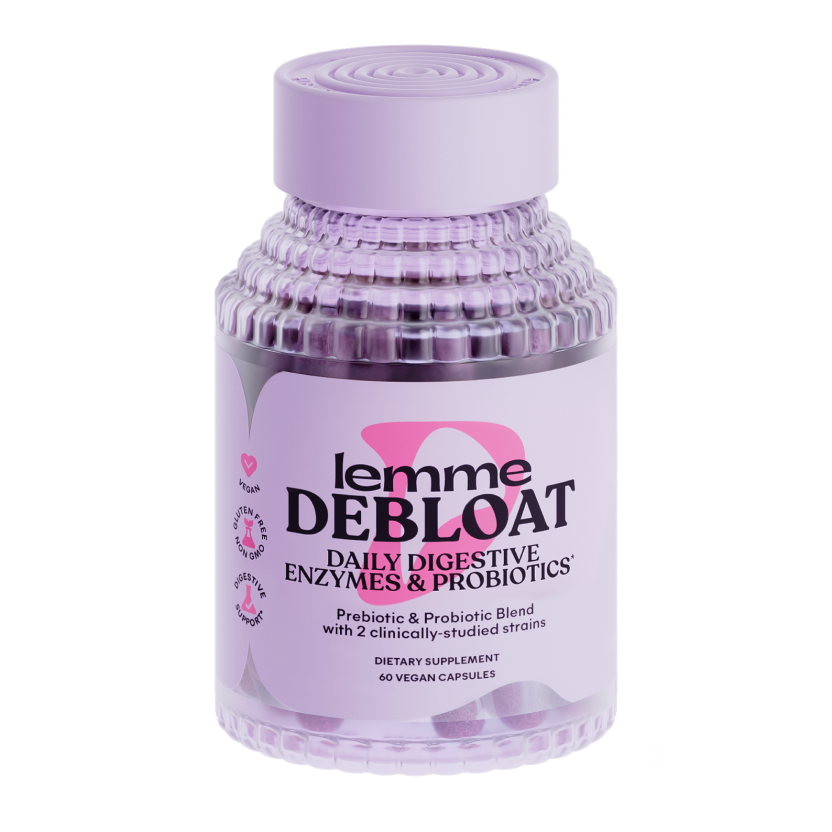
What Are Prebiotics? Why Everyone Should Take Them
You've probably heard of probiotics, but what about prebiotics?
Prebiotics can provide many of the same health benefits as probiotics, and can even enhance how probiotics work to promote a healthy gut.
So, what exactly are prebiotics, and why should you take them? Today, Lemme is here to talk all about these nutrients, including how prebiotics work in your body, their health benefits, and ways to incorporate them into your diet.
What Are Prebiotics?
Prebiotics are a group of non-digestible nutrients that act as a food source for the healthy bacteria, or probiotics, in your gut.
Prebiotics are naturally present in certain fruits, vegetables, and whole grains, particularly those rich in complex carbohydrates like fiber and resistant starch. In addition to prebiotic foods, you can also take prebiotic supplements.
There are many different types of prebiotics, but one common type of prebiotic in foods and supplements is a subset of carbohydrates called oligosaccharide carbohydrates (OSCs). Oligosaccharide prebiotics can have many different benefits for your health, which we will explore more in-depth shortly.
How Do Prebiotics Work In The Body?
Prebiotics are indigestible, which means that your stomach enzymes cannot hydrolyze these nutrients. While your body cannot digest the complex carbohydrates that comprise prebiotics, probiotics can. These healthy bacteria in your gut use prebiotics as fuel to enhance their own composition and function in your gut microbiome.
Prebiotics go straight to your intestine in your lower digestive tract, where probiotics break them down through fermentation.
Fermentation yields short-chain fatty acids (SCFAs) such as lactic acid, butyric acid, and propionic acid, which act as metabolites to offer different health benefits to your body.
What Are The Benefits Of Taking Probiotics
Prebiotics have many benefits, such as feeding your good gut bacteria, supporting a healthy immune system, supporting overall digestive health, and helping you feel your best after meals.
Let’s explore each of these benefits more in-depth below.
Feeds Your Good Gut Bacteria
Probiotics are good bacteria in your gut that can bring many health benefits, including relief from digestive issues, support for your immune system, and support for your overall health. There are many different strains of probiotics, but the two most common strains are Bifidobacteria and Lactobacillus.
You can get probiotics from fermented foods, such as yogurt and kefir, or dietary supplements. However, once you take probiotics, they need a way to survive and proliferate in your gastrointestinal tract. This is where prebiotics come in — prebiotics act as food to help probiotics survive in your gastrointestinal microbiome.
Additionally, prebiotics can support a healthy pH in your intestinal microbiome to maintain an acidic environment that bad bacteria do not like. This ensures that most prebiotics only serve as a food source for beneficial bacteria — not the bad bacteria, too.
Supports A Healthy Immune System
Did you know that your immune system has cells all throughout your body, and more than half of these cells are in your gastrointestinal system?
Prebiotics can help promote probiotic growth and survival, which supports a healthy immune system to fight off infections and keep you feeling your best.
Probiotics in your gut and intestine may help activate antibodies and T cells to help fight off infections and illnesses. Additionally, probiotics line the walls of your gut and intestine to create a protective barrier that can prevent pathogens from invading your gastrointestinal system.
Supports Overall Digestive Health
Your gastrointestinal system has a microbiome with trillions of microorganisms, including bacteria, fungi, and yeasts that line your gut and intestine. Not all microorganisms are good, but a healthy microbiome has just the right balance of good and bad microbes.
Even a slight imbalance in your gut microbiota can cause digestive issues such as bloating, abdominal discomfort, or irregular bowel movements. This is where prebiotics come in — prebiotics can help increase the number of beneficial bacteria, or probiotics, in your gut to help restore balance to your gastrointestinal microbiome.
Prebiotics may also support the function and activity of probiotics in your gastrointestinal microbiome, and can also help keep the cells lining your gut and intestine healthy.
Additionally, they can help carry waste products through your digestive system, which can, in turn, help provide relief from constipation, bloating, or other digestive tract issues.
Helps You Feel Your Best After Meals
The support for beneficial bacteria growth that prebiotics provide can help you feel your best after meals. Because prebiotics can contribute to sustaining a healthy balance of the good microbes that colonize your gut, they can, in turn, help keep digestive issues at bay, regularize your bowel movements, and provide relief from bloating.
The digestive support that prebiotics offer can also help enhance your body's ability to absorb nutrients (like vitamins, minerals, and antioxidants) from the foods you eat so you can feel more energized after each meal.
How Can You Get More Prebiotics?
You can get more prebiotics from food sources rich in dietary fiber.
Certain foods contain particularly high amounts of prebiotic fiber alongside vitamins, minerals, and antioxidants, including:
- Jerusalem artichokes
- Chicory root
- Leeks
- Legumes
- Flaxseeds
- Soybeans
- Dandelion greens
- Foods rich in calcium
In addition to prebiotic foods, you can take dietary supplements — just keep in mind that when you take a prebiotic supplement, it is important to choose an option with clinically studied ingredients, like Lemme Debloat.
Lemme Debloat has two clinically-studied probiotic strains and a vegan prebiotic sourced from non-GMO plant fibers to provide relief from digestive issues and support your overall digestive health. Lemme Debloat includes xylooligosaccharides (XOS) as a prebiotic to support beneficial bacteria growth and the healthy balance of microbes colonizing the gut.
What Else Can I Do To Support Good Bacteria in My Gut?
Stress, low-fiber diets, high-meat diets, and travel can negatively impact the levels of beneficial bacteria present in your gastrointestinal system.
To support the right balance of good and bad bacteria in your gut, try to stick to whole foods rich in dietary fiber and limit the amount of meat and highly refined packaged foods that you eat.
Additionally, incorporating exercise and stress management into your daily routine can help support the good bacteria in your gut and your overall health and wellness.
Even little things like going on a walk, taking time to meditate, or starting a deep breathing routine, can go a long way when it comes to supporting your gut health and your overall well-being.
The Bottom Line
Prebiotics are non-digestible nutrients that feed the healthy bacteria (probiotics) in your gut. Taking prebiotics can help support a well-balanced microbiome in your gut, which can bring many additional health benefits.
A healthy gut microbiome may aid in digestion to help you feel your best after meals and can support overall digestive health.
If you’re looking to support your overall digestive health and well-being, a prebiotic supplement like Lemme Debloat may be a great addition to your diet.
Just make sure that you consult your healthcare provider or dietitian before adding a prebiotic dietary supplement to your routine!
Check out our blog for more info on how to support your wellness, from gut health to stress management to nutrients and more!
Sources:
Prebiotics: Definition, Types, Sources, Mechanisms, and Clinical Applications | PMC
Gastrointestinal effects of prebiotics | British Journal of Nutrition







